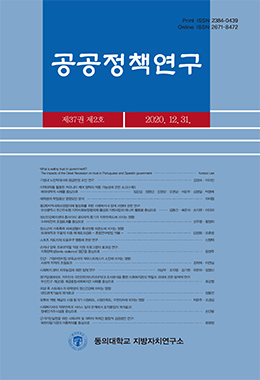본 연구는 사회과학 및 의학의 학제간 융합적 접근을 토대로 남한에 거주하는 북한이탈부모의 아동학대에 대한 예측요인을 검증하였으며, 이를 통해 근거기반실천(Evidence-based practice)을 실현할 수 있는 방안을 모색하였다. 연구 참여자는 북한이탈 부모 15명으로 사회과학적 측정인 이주 스트레스와 의학적 측정인 타액의 Cortisol 및 dehydroepiandrosterone sulfat(DHEAs) 농도를 분석에 활용하였다. 각 변수가 아동학대 가해행위와 관련성이 있는지는 검증하기 위해 Mann–Whitney U Test 분석방법을 통해 아동학대 가해집단과 비가해 집단을 비교하였다. 분석결과, ‘이주 스트레스’와 신체 호르몬인 ‘코티졸(Cortisol)’은 탈북부모의 아동학대 행위와 밀접한 관련성을 지니고 있었다. 반면, DHEA-s는 관련성이 없는 것으로 나타났다. 이러한 연구결과를 바탕으로 실천적⋅정책적 개입방안을 모색하였다.
This study validated the predictive factors of child abuse of North Korean refugees living in South Korea based on the interdisciplinary approach of social science and medicine. Through this, intervention plans that enables evidence-based practice were discussed. The subjects of this study are 15 North Korean defectors' parents. Focusing on ‘Acculturative Stress’ as a social science measurement and ‘Cortisol’ and ‘Dehydroepiandrosterone sulfat(DHEAs)’ as medical measurements, these were used for analysis. In order to achieve the purpose of this study, Mann-Whitney U Test analysis was used to comparing the perpetrators of child abuse and the non-perpetrator group. The results are as follows. First, ‘Accultrative stress’ and ‘Cortisol’ were closely related to child abuse. Second, ‘DHEAs’ was not associated with child abuse. These results suggest that only ‘Cortisol’ and ‘Acculturative Stress’ can function as predictors of child abuse. Based on these results, the policy and practical limplications were discussed.


